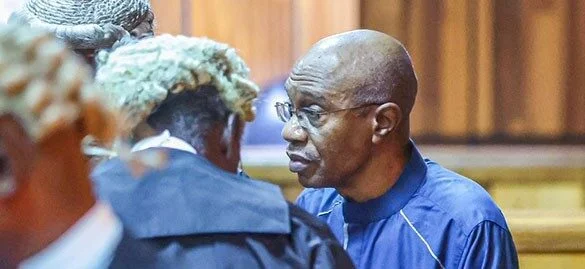Foreign Non-Governmental Organisations, banks, financial technology firms as well as Point of Sale terminal operators have been linked to terrorism financing in the country.
This is according to a report released by the Federal Government through its Nigerian Financial Intelligence Unit on Tuesday.
The 2022 National Inherent Risk Assessment of Terrorism Financing in Nigeria report, which assessed the level of terrorism financing risks the nation was exposed to, identified the affected NGOs to include those operating in terror-prone areas and engaged in humanitarian activities, service provision, and faith-based activities.
“The findings of this report indicate that TF in Nigeria is generally associated with the use of cash. This notwithstanding, field information flowing from law enforcement investigation as well as financial data have revealed constant interactions between the use of cash by terrorist actors and financial institutions, Bureau de Change, fintech firms, and Designated Non-Financial Businesses and Professions,” the report read in part.
“The inherent vulnerabilities of each sector were assessed by the extent to which products and services offered are found in domestic investigations or STRs in relation to TF. Current accounts products associated with Bureau De Change and NPOs/NGOs corporate customers have been observed to be connected with TF activities.
“The use of bank accounts in the movement of TF funds has featured prominently in both intelligence and investigations related to TF.
“Financial data have also shown that the illegal currency exchangers comingle transactions in their personal accounts as well as entity accounts held and controlled by them with that of their BDC activities.”
Based on the report, investigations by security agencies have revealed constant interactions between the use of cash by terrorist actors and financial institutions, bureau de change, fintech firms, and Designated Non-Financial Businesses and Professions.
Channels Television reports that the NFIU report relied on data from intelligence, security, and law enforcement agencies, the Central Bank of Nigeria, the Department of State Services, the Economic and Financial Crimes Commission, the Nigeria Financial Intelligence Unit, and various regulatory and supervisory agencies.
Other contributors to the report include the Corporate Affairs Commission, Defence Intelligence Agency, Federal Ministry of Justice, Nigerian Army Intelligence Corps, Nigeria Customs Service, Nigerian Extractive Industries Initiative, Nigeria Immigration Service, Nigeria Police Force, Nigeria Security and Civil Defence Corps, Office of the National Security Adviser and the Special Control Unit Against Money Laundering.
Nigeria has been battling insurgency for the past decade. The war has seen many killed and also displaced thousands of people in the North-Eastern part of the country.




